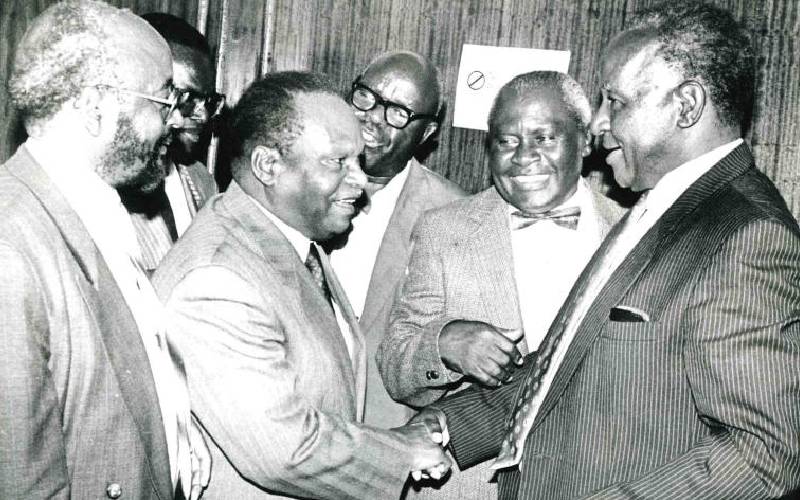×
The Standard e-Paper
Kenya’s Boldest Voice

Ford Asili officials Kenneth Matiba, Charles Rubia, Martin Shikuku and Kihara Waithaka, Feb 1994. [File, Standard]
Political analysts have mentioned three names as likely running-mate choices for ODM leader Raila Odinga. They are Martha Karua, Lee Kinyanjui and Peter Kenneth.